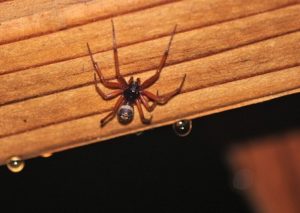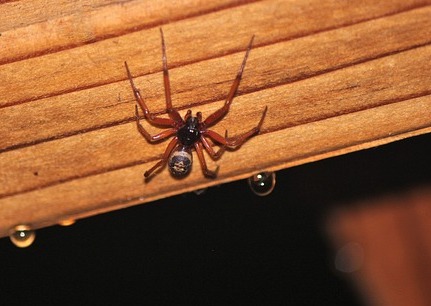NEW YORK — It would seem wise for male brown widow spiders to seek out younger females to mate with — after all, they’re less likely to be eaten after sex and more likely to successfully reproduce with the less mature gals. But a new study finds despite the better odds of surviving a romp, the male spiders still prefer mating with older, less fertile females.
Researchers from the Ben-Gurion University of the Negev, The Hebrew University of Jerusalem and The Volcani Center in Israel studied brown widow spider behavior after putting a group of males together with both older and younger “sub-adult” females. Mature female brown widow spiders are less fertile and are 50 percent more likely to cannibalize their mates, whereas immature females are the opposite. So the scientists expected the males would choose their partners so as to boost their odds of both survival and expanding their family.

As it turned out, the courting they’d hypothesized for the spiders didn’t go as planned.
“We originally thought the males would prefer the sub-adult females, as they are more fertile and far less likely to cannibalize them, but we were surprised to discover that was not the case,” the researchers write, according to a media release.
What’s behind the behavior? The authors say the brown widow females release a pheromone that woos the males to them over the immature females. “One possible explanation is that older females are manipulating the males by using strong signals to attract them, a hypothesis that remains to be tested,” they write.
Males also have the ability to prevent females from mating again with other males by leaving part of their sexual organs known as “pedipalps” inside the female after mating. Males would be better off doing this particularly with older females, but the researchers still found the guys simply weren’t making wise choices.
“Males don’t seem to be behaving in their own self-interest and suffer a twofold cost – fewer offspring and no opportunity to mate with another female,” the researchers conclude.
The full study was published in the March 2018 edition of the journal Animal Behavior.
